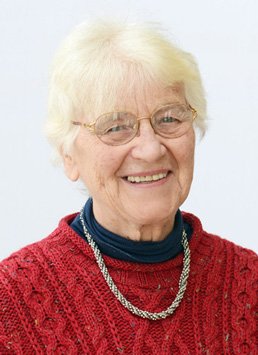Society for the Study of Women Philosophers, Inc.
a non-profit, tax-exempt educational charity 501(c)3 Internal Revenue Code
Eleanor Marx
1855-1898
Social & Political Philosophy, Feminism
|
Kate Lindemann's Women Philosophers pages |
 |
Remember!! Your purchase of books by clicking on Abe Books or Amazon links through this site earns us a small commission that is used to provide travel scholarships. |
NOTE: I owe a debt of gratitude to Alissa Pruess who submitted the material about Eleanor Marx.
Eleanor Marx (Eleanor Tussy Marx) was the sixth and last child of Karl Marx and Jenny von Westphalen. Throughout her life she was a student of Marxism and socialism, as well as an advocate for feminism and free expression.
As
a child she learned German, French and English and was responsible for
the first English translation of Flaubert's Madame Bovary.
Politically, she was a member of the Social Democratic Federation and later a founder of the Socialist League. She conducted a speaking tour in the United States and was involved in the formation of worker's unions and strikes. She wrote many books and translations throughout her life and was a regular contributor to the socialist publication, *Commonweal*.
Unfortunately, she succumbed to depression and committed suicide in 1898 after being betrayed by her common-law husband Edward Aveling. Despite her untimely end, her political, philosophical and artistic contributions live on in modern feminist and socialist thought.
Chronology
1855: Eleanor ("Tussy") Marx was born on January 16th, 1855. She was the youngest child of Karl Marx. She learned to speak German, French and English as a child and was said to be able to recite passages from Shakespeare.
1871: Eleanor became her father's secretary, traveling with him to international conferences on socialism.
1872: She fell in love with the French journalist and socialist Hippolyte Lissagaray. Her father disapproved of the relationship because Lissagaray was twice her age. During this time, to establish her independence, she became a schoolteacher in Brighton.
1873: Joined Lissagaray to write the "History of the Commune of 1871." Karl Marx later translated the book into English.
1880: Karl Marx gave his permission for Eleanor to marry Lissagaray.
1881: Her mother died and her father asked her to ready unfinished papers for publication, including the English translation of Das Kapital.
1882: Even with the approval of her father to marry, Eleanor terminated her long standing engagement to Lissagaray.
1883: Her father died.
1884: Eleanor joined the Social Democratic Federation. She was elected as the SDF Executive in part for her exceptional skills as an orator.
1884: Marx became involved with Edward Aveling who shared similar views on religion and politics. Aveling was already married, but Eleanor lived with him as his common law wife.
1885: Eleanor and Edward split with the Social Democratic Federation and along with William Morris formed the Socialist League which advocated "Revolutionary International Socialism." During this time the International Socialist Congress met in Paris and the couple also completed a speaking tour in the United States. The Factory Hell, her first book, was published.
1886: Eleanor was introduced to Clementina Black (founder of the Women's Trade Union League) and became involved with the Women's Trade Union League. She also assisted her close friend Annie Besant (early leader of the Theosophical Society) in the Bryant & May match-girl strike. In the same yearThe Woman Question was published.
1886: Marx
was involved in theater and acting throughout the 1880's and believed
it to be a tool for socialism and feminism. In 1886 she performed
Ibsen's, A Doll House, with Aveling and George Bernard Shaw.
1887: Along with Will Thorne, Eleanor organized the National Union of Gas Workers and General Laborers.
1888: Her third book Shelly's Socialism, was released.
1889: Marx assisted Ben Tillet in the Docker's Strike.
1891: The Working Class Movement in America was published.
1892: Eleanor was the first English translator of Flaubert's Madame Bovary. She was also responsible for numerous other translations of Ibsen and others throughout the 1880's and 90's.
1893: Marx attended the founding conference of the Independent Labor Party, where ultimately members were more inclined towards Christian socialism than Marxism.
1896: Her last book, The Working Class Movement in England, was published.
1897: Marx rejoined the Social Democratic Federation.
1898: Marx committed suicide on March 31st after persistent personal anguish spurned on by her tumultuous relationship with the faithless Edward Aveling.
Bibliography
Books:
The Factory Hell. With Edward Aveling. London: Socialist League Office, 1885.
The Woman Question. With Edward Aveling. London: Swan Sonnenschein & Co., 1886.
Shelley's Socialism: Two Lectures. London: privately printed, 1888.
he Working Class Movement in America.* With Edward Aveling. London: Swan Sonnenschein & Co., 1891.
The Working Class Movement in England: A Brief Historical Sketch Originally Written for the "Voles lexicon" edited by Emmanuel Wurm, London: Twentieth Century Press, 1896.
Translations
Edward Bernstein, Ferdinand Lassalle as a Social Reformer. London: Swan Sonnenschein & Co. 1893.
Gustave Flaubert, Madame Bovary: Provincial Manners. London: W.W. Gibbings, 1892.
Henrik Ibsen, A Doll's House; An Enemy of the People, The Pillars of Society and Other Plays. London: W. Scott, 1888.
_____.The Lady from the Sea. London: Fisher T. Unwin, 1890.
_____.The Wild Duck: A Drama in Five Acts. Boston: W.H. Baker, 1890.
Hippolyte-Prosper-Oliver Lissagaray, History of the Commune of 1871. New York: International Publishing Co., 1898.
George Plechanoff [Georgii Plekhanov], Anarchism and Socialism.
Secondary Sources
Yvonne Kapp, Eleanor Marx: Volume 1: Family Life, 1855-1883. London: Lawrence and Wishart, 1972. Also: New York: Pantheon Books, 1976.
Eleanor Marx, Volume 2: The Crowded Years, 1884-1898. London: Lawrence and Wishart, 1976. Also: New York: Pantheon Books, 1976.
Olga Meier and Faith Evans (eds.), The Daughters of Karl Marx: Family Correspondence, 1866-1898. New York: Harcourt Brace Jovanovich, 1982.
John Stokes, Eleanor Marx (1855-1898): Life, Work, Contacts. Aldershot: Ashgate, 2000.
Chūshichi Tsuzuki, The Life of Eleanor Marx, 1855-1898: A Socialist Tragedy. Oxford: Clarendon Press, 1967.
See also: Eleanor Marx
Society for the Study of Women Philosophers